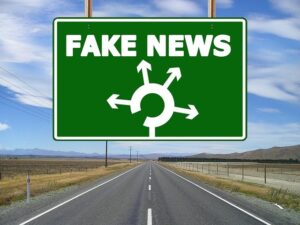Making History
Singapore made history in November when it placed restrictions on Facebook using its new Fake News law.
Singapore enacted the Protection from Online Falsehoods and Manipulation Act to combat fake news that is “against the public interest.”
The law raised concerns about infringement on free speech. Singapore’s government countered, however, that it doesn’t want to limit free speech. Instead, it said it only wanted to protect against harmful information. The law carries stiff penalties: fines as high as 50,000 SGD (about $36,000), and imprisonment of up to 5 to 10 years.
In November, the State Times Review news site published a Facebook post saying that Singapore arrested an alleged whistle blower. It also contained accusations of election-rigging. After the editor refused Singapore’s request to change the post, Singapore turned to Facebook and asked it to enforce its law by posting a label on the Facebook post. The label reads that Facebook is “legally required to tell you that the Singapore government says this post has false information.”
What’s Next?
Now that Facebook has deferred to Singapore’s law, what will other governments expect when it comes to their own potential laws against fake news in social media? Certainly, it will be much harder for Facebook to hold its ground now that it has complied with Singapore’s request. Additionally, the government may ask other social media companies like Instagram, Twitter and Google to comply with its regulations. The law technically applies even to chats with end-to-end encryption. The Singaporean government could also ask for complete removal of a post because of public safety and public interest concerns.
In a given case, a government may be correct about the impropriety of damaging fake news and false information. But what about more generally? Can governments be the watchdogs for defining harmful fake news without infringing freedom of speech?






